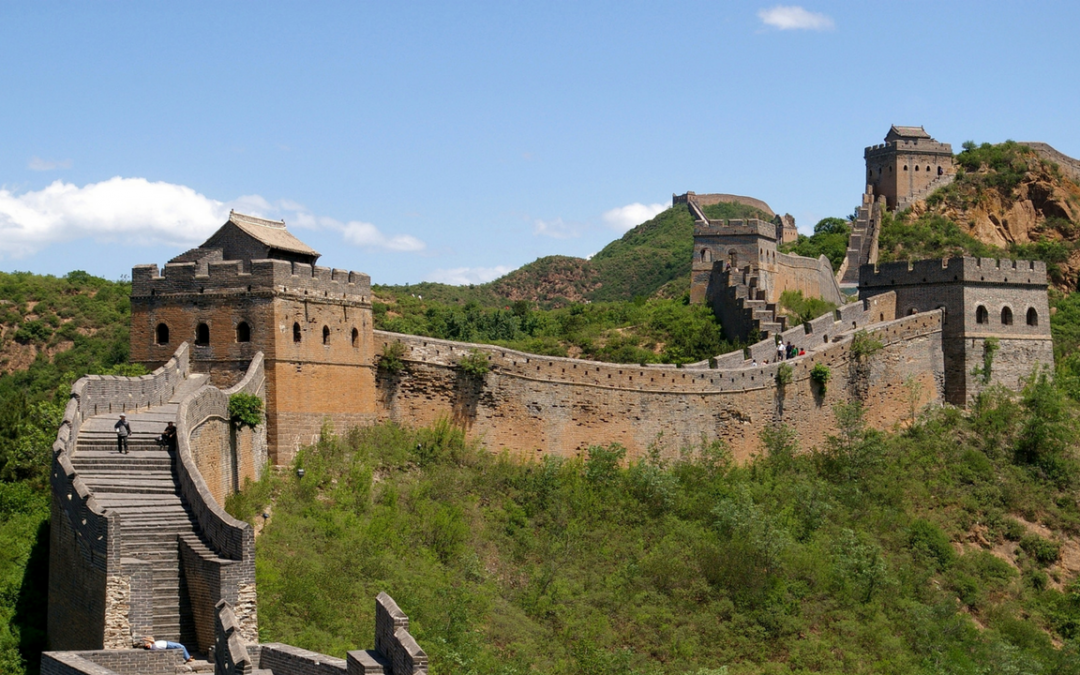Qin Shi Huang unified China for the first time in history. From his rise to power, to the Great Wall, and his search for immortality, this is an article on the epic life of China’s Qin Shi Huang.
Rise To Power
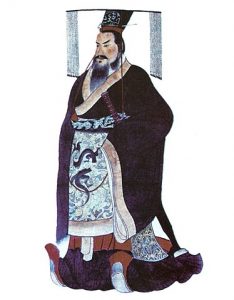
Qin Shi Huang, at the time known as Zhao Zheng, became the King of Qin when he was only 13 years old. His father died a short 3 year reign. Since he was so young, a man named Lu Buwei acted as the regent prime minister. Qin was currently at war with the remaining six states, and so they couldn’t give the responsibility of leading to someone so young. This was in 246 BC.
Lu Buwei had become involved with Zheng’s mother, and feared that Zheng would find out about this. He introduced a man named Lao Ai to queen dowager. Lao Ai was pretending to be a eunuch, and plucked his beard to make it more believable. Lao Ai seduced the queen, and had two children with her. This is when Lao Ai came up with the devious plan to replace King Zhao, with one of his two sons. This would make him incredibly powerful, but also solve Lu Buwei’s problem. He would no longer need to fear the king.
Lao Ai stole the queen’s seal, the symbol of her power, and gathered an army, and attempted to depose the king. King Zheng found out about this, and ordered Lu Buwei to let two lords attack the rebel army. They defeated this army, but Lao Ai managed to escape. He put an enormous bounty on his head, which led to his capture. Lao Ai was torn into five pieces by horses, Lu Buwei committed suicide in 235 BC, and the queen was put under house arrest until the day she died. This is when, he assumed full power.
Unification Of China Part One
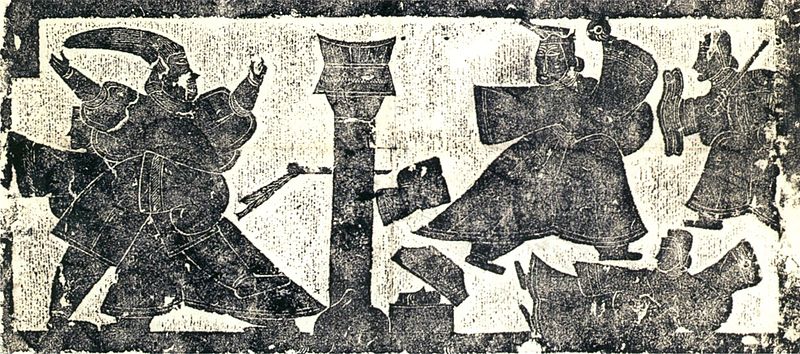
The plan to conquer China was one of absolute genius. They decided to ally with states that were far away, and attack the ones that were near. This meant allying with Yan and Qi, deterring Wei and Chu, and conquering Han and Zhao.
In 236 BC, while Zhao was busy invading Yan, Qin used the opportunity to attack Zhao. This was successful and he managed to capture nine cities and weaken the state. Zheng wanted to conquer Han, but was worried that Zhao would come to assist. He decided to attack Zhao first. He attacked several times, but none of them were successful enough to conquer them.
In 230 BC he took the opportunity to attack Han. He conquered Han with ease, in only one year the weak state of Han had surrendered to Qin. He finally defeated the Zhao by bribing a Zhao minister to sow discord between the King of Zhao, and his general Li Mu. This led to Li Mu’s dismissal. The Qin took advantage of this to attack Zhao in 228 BC, and managed to win. They rode the momentum of this victory until they had completely annihilated and conquered Zhao.
Unification Of China Part Two
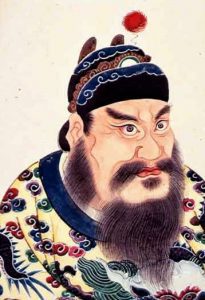
In 228 BC, after the fall of Zhao, they got ready to attack Yan. One minister suggested that they ally with Dai, Qi, Chu, and make peace with the northern barbarians. This would put them in a position to counter the Qin invasion. However, King Xi or Yan didn’t believe this plan would work. Yan was a weak state, and would have no chance against the much more powerful state of Qin. Yan, realising this, attempted to assassinate Zheng. He asked a man named Jing Ke, to assassinate the emperor. They would do this by presenting two gifts to the King.
He went with another man named Qin Wuyang, each one of them would walk forward holding one of the gifts. When it came down to it, Wuyang was too terrified to move, and Jing Ke had to present both gifts himself. While trying to do this, a concealed knife slipped out and fell on the floor. A mad struggle ensued between the King, and Jing Ke, both trying to kill each other. Other than Jing, the king was the only one armed, since nobody else was permitted to carry a weapon. Eventually the King managed to kill Jing. He then went on to conquer the state of Yan.
Unification Of China Part Three
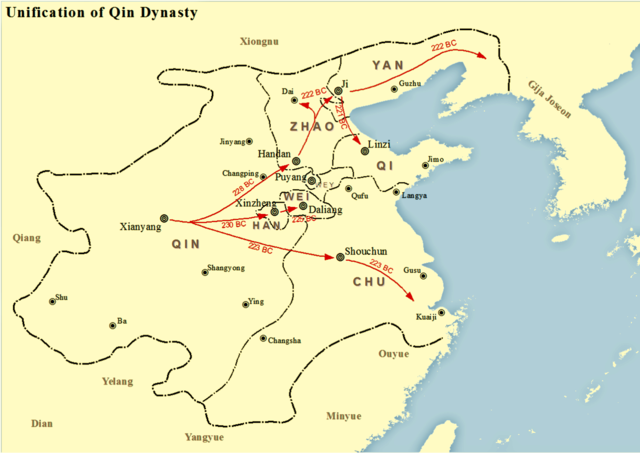
He conquered Wei by putting together an army of 600,000 and invading the state. Zheng conquered the capital, Daliang, by diverting the Yellow River and flooding the city which led to the King of Wei’s surrender. The conquest of Chu started off with disaster. After setting up a meeting to discuss various strategies, Wan Jian claimed that it would take 600,000 troops to conquer Chu. In contradiction, Li Xin claimed only 200,000 would be enough. Zheng believed Li Xin, and let him take charge. This proved to be a mistake, Li Xin failed miserably, and his force was destroyed. Zheng went to visit Wan Jian, and apologised for ignoring his advice that it would take 600,00 men. He let Wan Jian take charge, and Jian was successful in defeating Chu. With Chu conquered, the only state left was Qi. If he could conquer them, he would rule China.
Qi was easily conquered as an official who had been bribed by Qin, urged them to surrender. The king of Qi, took his advice and surrendered to the Qin forces without a single battle. This completed Zheng’s unification of China. Now Zheng declared himself Qin Shi Huang, which means “first emperor of Qin”.
The Great Wall
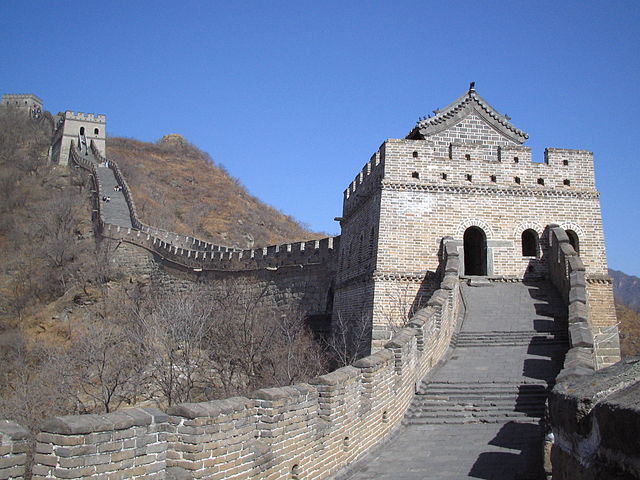
Although he had conquered China, he still had to deal with the barbarians to the north. After fighting them, but not really getting anywhere, he decided to build a giant wall to keep them out. It took hundreds of thousands of men to build the wall. They made it easier on themselves by connecting walls and fortifications that had already been built over the last 400 years. The wall would continue to be lengthened throughout China’s history.
Search For Immortality
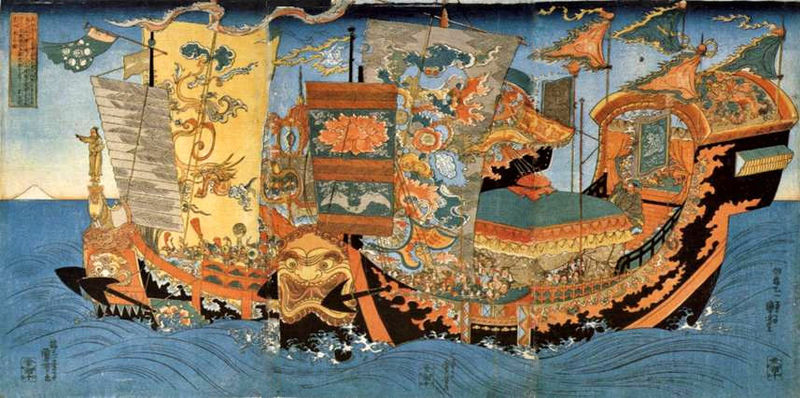
One of the strangest parts of Zheng’s life, was his obsession with death, and relentless pursuit of immortality. During this period of his life, he dedicated himself to finding the legendary elixir of life. The emperor claimed he had met a 1000 year old sorcerer, and sent out some men on a voyage to find him. This ship never returned, which might be for the best. If they returned without the elixir they might have suffered severe consequences. He was terrified that evil spirits may claim his life, and so he had tunnels built connecting his 200 palaces so he could travel in secret. Eventually this is what led to the emperor’s death. He had his alchemists create an “elixir of life”, created with mercury. He expected to live forever, instead he died of mercury poisoning.
His Strange Death
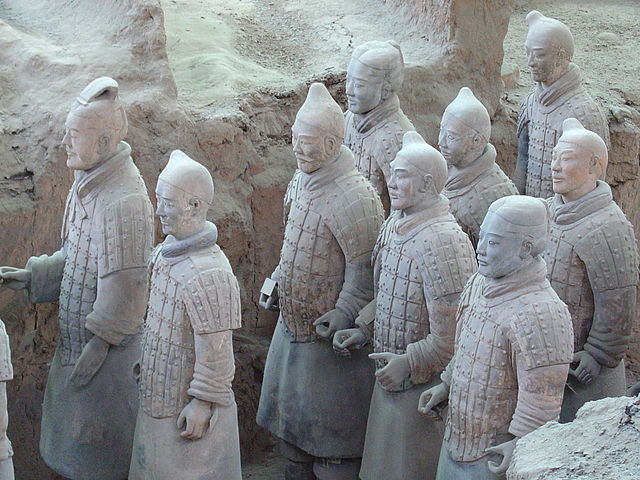
What happened after his death may be even stranger than his attempt to avoid it. A conspiracy instantly sprung after he died, with the intention of hiding his demise. They believed that if word got out about his death, it may cause rebellions to spring up. They hid his death for as long as possible. While transporting his body, they had a wagon carrying dead fish both in front and behind it, to cover up the smell. He was buried in a hidden mausoleum. Inside are thousands of statues of soldiers, known as the Terracotta Army. Although Qin Shi Huang’s dynasty was short, only 15 years, it was easily one of the most significant.

